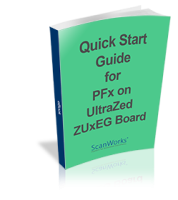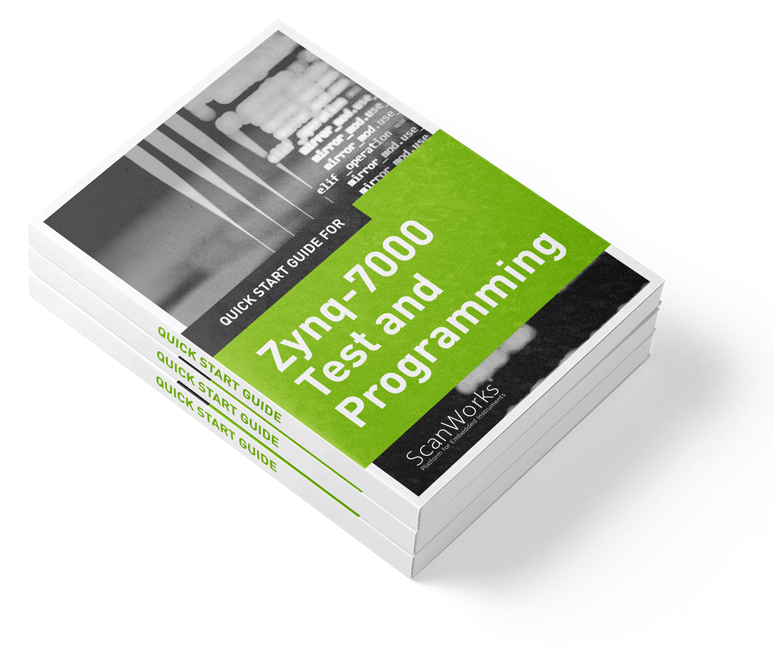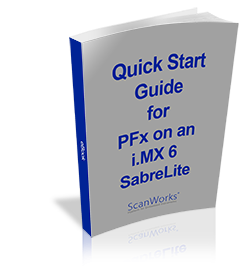ScanWorks Board Functional Test & Device Programming
About ScanWorks Board Functional Test & Device Programming
Increasing Test Coverage is key to quickly finding faults to improve yields
Almost all boards today have test access issues due to the combination of functional density and board size. Boundary scan has been the leading board test technology to address lack of access and the more boundary scan devices you have, the better the test coverage. But boundary scan has it limits where devices don’t have boundary scan or you need a broader fault spectrum than just shorts and opens, especially with today’s high-speed SerDes IO technologies and various bus topologies. ScanWorks Processor-based Functional Test (PFT) and DRR Test (PFTDDR) are the answers to solve those tough problems.

When Maximizing Test Coverage matters…ScanWorks PFTDDR and PFT deliver
Save DDR configuration and test time
When designing with the latest SDRAM (DDR2, DDR3, DDR4, LPDDR) memories, having the correct DDR configuration parameters are critical, especially when dealing with ECO like the DDR memories device change or a spin of the PCB. With the demand to deal with multiple DDR memory suppliers increasing, testing of memories becomes a critical step in delivering a quality product. A comprehensive set of memory tests are required and the ability to deal with an ECO to account for the configuration or calibration factors. ScanWorks PFTDDR provide the test engineer the tools and flexibility to deal with changes in production.
When Optimizing Memory System Performance matters…ScanWorks PFTDDR delivers
Program even the largest devices quickly
Today’s designs use large SD/MMC/eMMC flash components. ScanWorks Processor-based Fast Programming provides IP to enable device programming at device speeds. Thus, enabling dynamic in-system programming during production and eliminating other costly programming steps.
Processor-based Functional Test for Board Test
ScanWorks Processor-based Function Test (PFT) has two versions: One for ARM 32-bit processors and another for ARM 64-bit processors. The 32-bit version supports both the AMD Zynq 7000 and NXP i.MX6 IO busses on those devices. The 64-bit version support the AMD UltraScale IO busses on that device. Both versions include device specific target agents that enables testing of the IO busses and devices. The target agents are download into the SoC memory and then use the ARM processor as the test engine.
Supported Processors
PFT provides fast testing of bus devices and are determined by the SoC architecture. All testing is done at-speed which will catch problems with cross talk or injected noise that escape other forms of structural testing. PFT requires no boot-loaders, OS or drivers to be loaded thus providing an excellent platform for production and prototype testing.
Supports device interface and connection testing of
- i.MX6: DDR. Bluetooth, Ethernet, MMC, NAND, NOR, SD, SDIO, PCIe, SATA, GPIO, I2C, UART, USB
- AMD Zynq 7000: DDR, Ethernet, PCI/PCIe, GPIO, I2C, UART, SPI/QSPI, SD/MMC
- AMD Zynq UltraScale+: DDR, Ethernet, GPIO, I2C, UART
Processor-based Functional Test for DDR
ScanWorks Processor-based Functional Test for DDR provides the fastest means in assisting designers with optimal DDR configurations and shortening the test development cycle, thus keeping projects on schedule. Like the other members of the ScanWorks PFx family (Processor-based Fast Programming, Processor-based Functional Test) Processor-based Functional Test for DRR uses the core portion, CPU and OCM (On Chip Memory), of the SoC as the target for the controlling agent. This firmware will lessen the knowledge burden for DDR calibration, tuning, and functional test development. It provides everything needed for a fast and comprehensive solution for configuration and testing of all DDR memory. The memory tests include:
- Walking 0’s and 1’s
- Address Line Test
- Data Bus Noise Test
- Memory Cell Test
- At-speed Testing
- Address March Test
- Burst Transfer Test
- Performance Tests
- Simultaneous Switching Output Test
This firmware has no need of an operating system or boot loader, thus is perfect for early prototype board development. ScanWorks Processor-based Functional Test for DDR is designed to enable time savings in development and to increase product quality for Arm Cortex based SoC’s from AMD and NXP. Arm-based SoCs provide a powerful platform for product development in many market segments such as Defense, Automotive, Embedded Vision, IoT and IIoT. The common thread in all these markets is developing with DDR memories.
The benefit of the SoC reducing chip count comes with a cost in terms of additional knowledge requirements for both development and manufacturing test in configuration of the embedded DDR memory controller. ScanWorks PFx reduces the knowledge burden and increases quality. The combination of ScanWorks and the right ARM SoC will ensure your development project is a success.
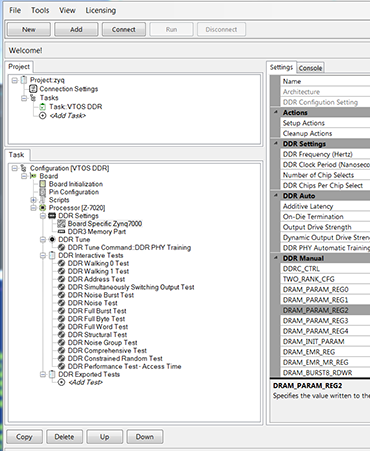
Supported Processors
Processor-based Fast Programming
ScanWorks Processor-based Fast Programming (PFP) is a simple tool to quickly develop a device programming action to be added to your production test program. A processor specific target-resident agent is the key proprietary ScanWorks technology that enables fast flash programming. The agent is automatically downloaded into the SoC, which is the engine that programs the flash device at device speeds.
Product by Processor supported
Products
- 32-bit ARM version of PFP with a device library (Zynq-7000, i.MX6)
- 64-bit ARM version of PFP with a device library (Zynq-UltraScale+)
Key PFP Features:
- Programming flash devices at the speed of flash component for:
- Serial NOR, NAND, SD/MMC
- Test engineering programming control
- Programming interactively or Script driven in production
- Scripting not required by test engineering, but can script when desired
- SoC/Processor and flash device programming knowledge not necessary
- Image control (read, write, verify, block, sector and checksum) via UI parameters
- Programming interfaces
- JTAG to the processor
- Ethernet or USB for programming large files for QSPI or MMC/eMMC/SD with file transfer
AMD Zynq 7000 Fast Flash Programming
ScanWorks Processor-based Fast Programming (PFP) for ARM 32-bit Processors is the product that supports a specific target agents for the AMD Zynq 7000 All Programmable SoC portfolio. These target agents configure the SoC allowing flash devices attached to the processor fabric (ARM Cortex-A9) to be programmed at near device speeds. Programming of NAND/NOR/SPI/SD/MMC and eMMC is supported. For large flash images a larger data pipe (Ethernet or USB) can be utilized if supported on the target for higher programming rates.
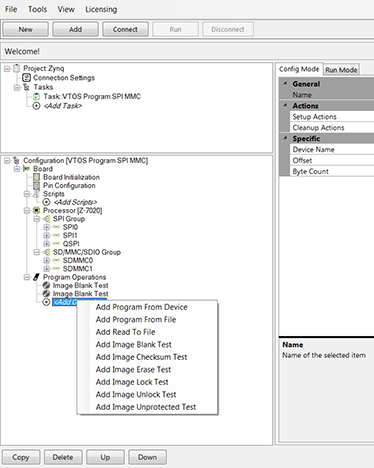
Processor-based Fast Programming for TI Power Management UCD3138
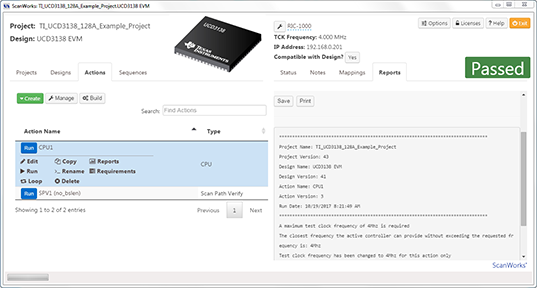
The Texas Instruments (TI) UCD3138 is a digital power supply controller offering superior levels of integration and performance in a single-chip solution.
Processor-based Fast Programming uses a target agent that is task specific to configure embedded controllers to gain access to the flash components. By using On-Chip Memory (OCM) and our in-target methodology, we ensure maximum programming speeds and accurate device control with minimal parameters supplied by the end user. The script can be modified for specific production flows.
Watch our video:
AMD UltraScale Fast Flash Programming
ScanWorks Processor-based Fast Programming (PFP) for Arm 64-bit Processors is the product that supports a specific target agent for the AMD UltraScale+ family of devices. This target agent IP configures the SoC, allowing flash devices attached to the processor system (Arm Cortex-A53) to be programmed at near device speed. All flash types supported by the SoC are support in the programming library IP. For large flash images a larger data pipe (Ethernet or USB) can be utilized, if supported on the target, for higher programming rates.
NXP i.MX6 Fast Flash Programming
ScanWorks Processor-based Fast Programming (PFP) for Arm 32-bit Processors is the product that supports a specific target agent for the NXP i.MX6. It allows flash devices attached to the Arm Cortex-A9 processor to be programmed at device speeds after downloading the target agent to OCM. The program image is downloaded to a buffer via the NXP i.MX6 JTAG or network interface depending upon the project/target configuration and capabilities.
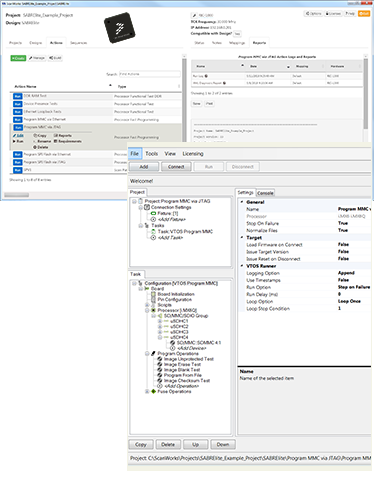
AMD Zynq 7000 for Functional Test
ScanWorks Processor-based Functional Test (PFT) for ARM 32-bit
ScanWorks Processor-based Functional Test (PFT) for ARM 32-bit Processors is the product that supports specific target agents for the AMD Zynq 7000 All Programmable SoC portfolio. These target agents configure the SoC embedded controllers or device interfaces that attached to the processor fabric (Arm Cortex-A9) to enable testing of the device or bus at-processor speeds. Test development is easy as automated test development is provided when connected to a known working board.
AMD UltraScale for Functional Test
ScanWorks Processor-based Functional Test (PFT) for ARM 64-bit
Processor-based Functional Test (PFT) uses a target agent that is task specific to configure the various IO controllers and gain access to the end-point components. By using On-Chip Memory (OCM) and our in-target methodology, we ensure accurate device control with minimal parameters supplied by the end user. The devices are tested at-speed by using the processor to execute the test code.
NXP i.MX6 for Functional Test
ScanWorks Processor-based Functional Test (PFT) for ARM 32-bit Processors is the product that supports a specific target agents for the NXP iMX6 family. These target agents configure the SoC embedded controllers or device interfaces that attached to the processor fabric (ARM Cortex A9) to enable testing of the device or bus at-processor speeds. Test development is easy as automated test development is provided when connected to a known working board.
Related Products
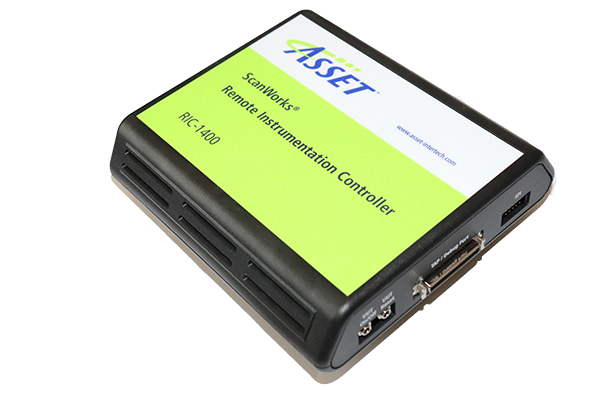
The ScanWorks platform for embedded instruments is supported by a wide variety of hardware controllers and accessories with which engineers can connect ScanWorks to their unit under test (UUT). Hardware is available for development, production and repair environments. The test platform required for ScanWorks is either a standard PC or a system with a built-in (embedded) JTAG controller.

